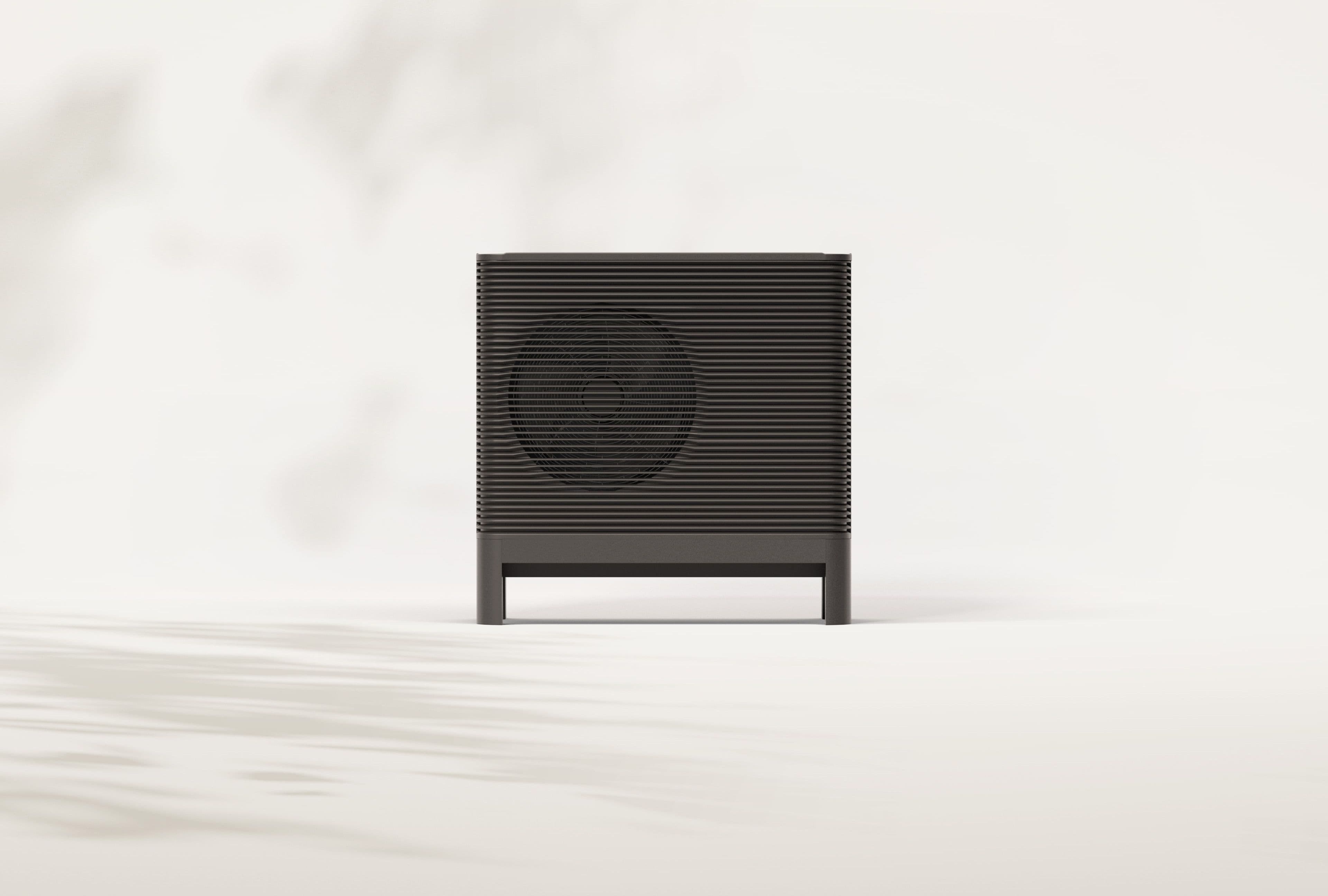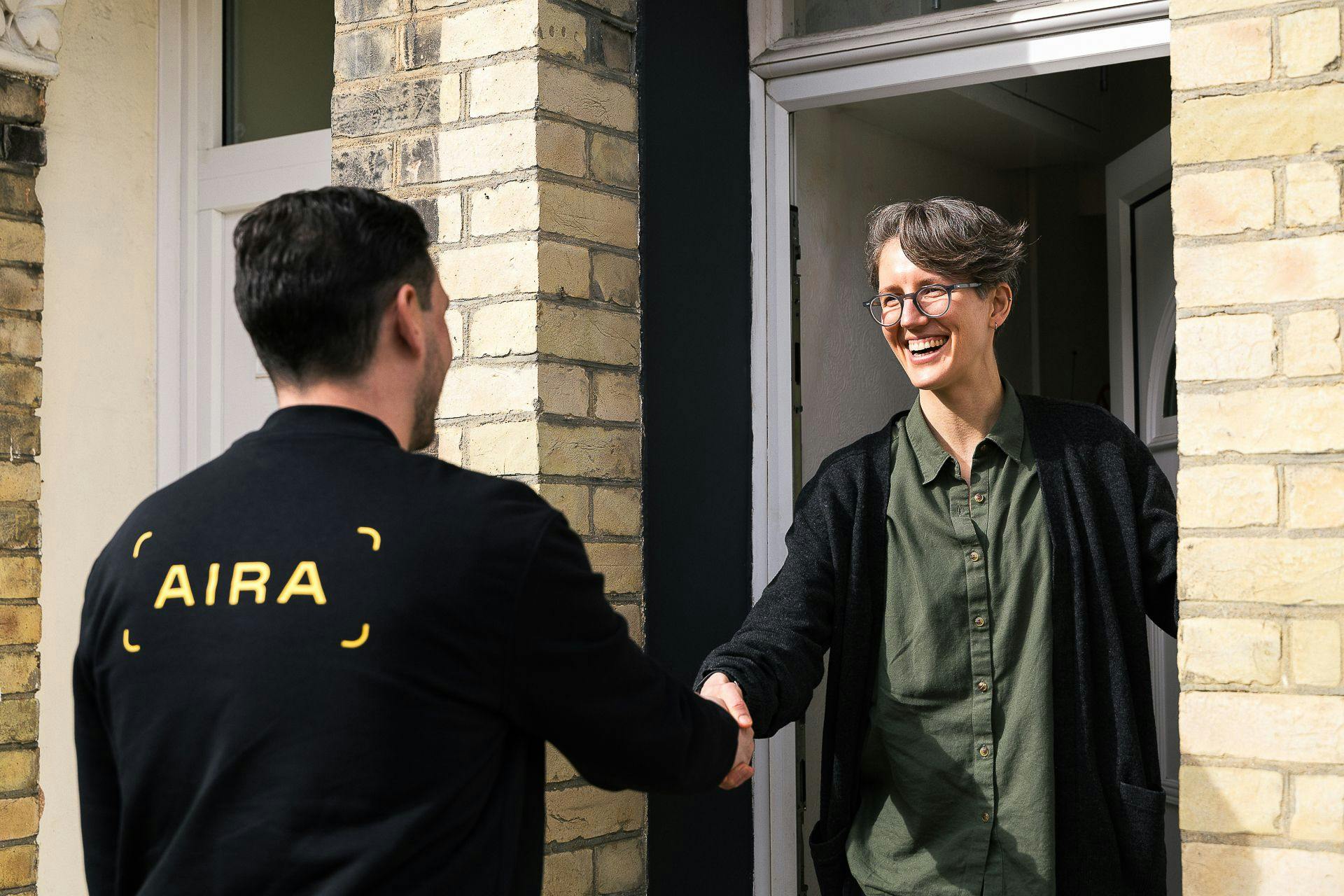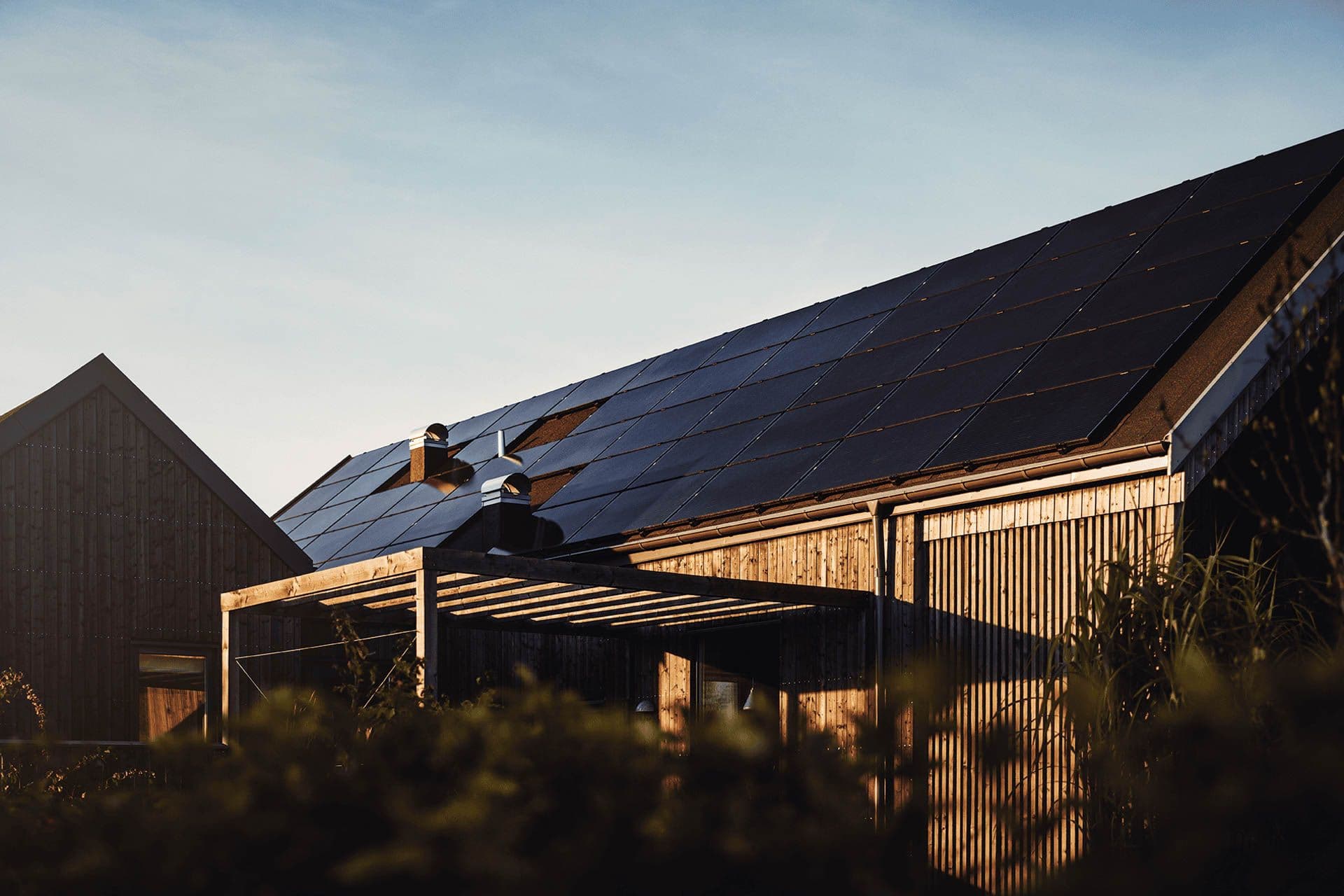7 February 2024
5 minute read
Written by:

Carl Robinson
Content Manager
The complete pros and cons guide to air source heat pumps

Thinking about a heat pump? You’re not alone. More and more people across the UK are rethinking how they heat their homes. Not just to save on bills, but to do right by the planet too. And for many, an air source heat pump is the smartest place to start.
In this guide, we’ll walk you through what they are, how they work, and what to expect – the good, the not-so-good, and everything in between – so you can decide if it’s the right move for your home.
What is an air source heat pump?
If you know what an air source heat pump is already, skip this section. If you don't, an air source heat pump is a low-carbon heating system that draws heat energy from the outside air (even in freezing conditions) and transfers it into your home using a heat exchanger and electricity.
There are two main types:
- Air to water heat pumps – these are the most common in the UK and Europe. They heat water for your central heating system and domestic hot water.
- Air to air heat pumps – these warm your home by blowing heated air into rooms and can provide cooling during the summer months too.
Both systems are powered by electricity, but because they extract heat rather than generate it, they’re far more energy efficient than traditional heating systems.
In this article, we’re focusing on air-to-water heat pumps. The most common type in the UK, and the kind we install every day.

The advantages of an air source heat pump (why should you switch?)
With climate change out of control and energy prices going through the roof, air source heat pumps (like the Aira Heat Pump) are a powerful way to reduce your carbon emissions and energy bills.
1. Energy efficiency that saves you money
A modern air source heat pump can achieve a Coefficient of Performance (CoP) of 4 or more. That means for every unit of electricity it uses, it can generate up to four units of heat. That’s a big leap in energy efficiency compared to oil boilers or traditional gas boilers, which usually sit under 1.
2. Cut carbon emissions
Heating is one of the largest sources of household carbon emissions in the UK. Switching to a renewable source of heat, like an air source heat pump, can drastically lower your carbon footprint. In fact, it is the most powerful thing you can do. More powerful than going vegan, quitting flying or getting an electric vehicle. And, when powered by electricity from renewable energy sources, the result is zero-carbon-emission heating.
3. Lower your heating bills
A well-installed and properly sized air source heat pump can reduce your heating bills by up to £490 a year. The savings are especially noticeable if you’re switching from oil boilers or an inefficient traditional boiler. Check out our heat pump cost and savings page to learn more.
4. Long-term return on investment
Though there is usually a higher upfront cost compared to a boiler, your air source heat pump system will typically last 20–25 years with an annual service and minimal upkeep. Over that time, the savings on your energy bills can outweigh the initial cost, making a heat pump a smart long-term investment.
5. Government support with the Boiler Upgrade Scheme
The UK government’s Boiler Upgrade Scheme offers a grant of up to £7,500 to help with heat pump installation. This significantly reduces your outlay and makes the transition to renewable heating more accessible. And at Aira, we take care of all the paperwork. So you don’t have to.
If you live in Scotland, there's up to £15,000 in funding with the Home Energy Scotland Grant and Loan.
Air source heat pump advantages (at a glance)
✔ Uses a renewable source of energy
✔ Cuts reliance on fossil fuels
✔ Reduces home heating carbon emissions by up to 100%
✔ Lowers energy bills by up to £490 a year
✔ Eligible for the Boiler Upgrade Scheme (£7,500 off the price)
✔ Offers heating and hot water (with air to water systems)
✔ Pairs well with solar panels for added efficiency
✔ Requires only one unit of electricity to generate 4 units of heat

The disadvantages of an air source heat pump (things to consider before you install)
Heat pumps aren’t one-size-fits-all. They work best in well-insulated homes and require careful planning and expert installation for top performance.
1. Insulation and heating systems
Air source heat pumps operate at lower water temperatures than gas boilers, so pairing them with underfloor heating or larger radiators is often needed to keep the energy savings high. If your home needs insulation upgrades, this may add to your initial cost, but it ensures better performance and comfort.
2. Outdoor space requirements
Your air source heat pump system will need some outdoor space for the outdoor unit. This unit extracts heat from the air and should be placed in an area with good airflow and minimal obstruction.
3. Noise levels
Modern pumps are quiet, typically producing around 40–60 decibels. The Aira Heat Pump, for example, is designed to blend right in. At just 46-51 decibels, it’s a noise that fades into the background. So you can forget it’s even there. Still, it’s worth considering noise levels when deciding where to install the outdoor unit, especially in more compact urban environments.
Let's address some common concerns about air source heat pumps
No system is perfect, and it’s important to understand the full picture. Here’s a look at some of the cons of air source heat pumps and how to manage them.
1. Cost of installation
Even with support from the Boiler Upgrade Scheme, a full air source heat pump installation can cost between £6,500 and £12,000. This includes the pump itself and any necessary updates to your heating system, like larger radiators or underfloor heating. But remember: the savings on energy bills build year after year.
2. Property compatibility
Not all homes are immediately suitable. Homes with poor insulation or limited outdoor space might need adjustments first. But with Aira, we assess everything during your free home energy assessment to ensure the solution we recommend fits your home perfectly.
3. Efficiency in colder months
While air heat pumps work even in sub-zero temperatures, performance can dip slightly, just like boilers. That’s why sizing and design matter, and why Aira’s experts tailor each system to your home’s unique needs.
4. The learning curve
Unlike traditional heating systems, a heat pump works differently and may require some adjustments in usage habits. But once you’re familiar with the "set it and forget it" mantra, the system is intuitive, consistent, and intelligent.

Is an air source heat pump worth it?
Absolutely. For many homes, the range of benefits far outweighs the cons of heat pumps. Yes, the upfront cost and planning involved are real considerations. But with the right home setup (and a trusted provider like Aira) the shift to renewable heating pays off in comfort, savings, and peace of mind.
Ready to leave traditional boilers behind? Aira’s team is here to help you make the switch to cleaner, more affordable heating.
Ready to install an air source heat pump?
What type of house do you live in?
Keep learning
Similar articles to expand your knowledge

Published today
Carl RobinsonThe Warm Homes Plan: what it really means for your energy bills
The UK’s new Warm Homes Plan confirms one thing: the future of cheaper energy is clean, electric homes. Here’s what the plan really means for homeowners. And how heat pumps, solar and home batteries can cut your bills long before 2030.

Published at 15 Jan 2026
Carl RobinsonIs a heat pump ideal for your semi-detached home?
Think heat pumps are only for large detached homes? In reality, semi-detached houses are perfectly suited to them. We delve into why heat pumps work so well in these homes and whether yours is ready for the swtich.

Published at 6 Jan 2026
Carl RobinsonSolar panels with home battery storage: is it worth it?
Solar panels generate free, 100% clean energy, but a home battery is what helps you use more of it. By storing excess solar power for later, battery storage can make solar far more effective. Here’s why solar and batteries belong together. And where Aira fits in.

Published at 19 Dec 2025
Carl RobinsonIs a heat pump ideal for your single-family detached home?
If you own a single-family detached home, you’re already in a strong position to switch to a heat pump. With full control over your space, insulation and energy use, heat pumps can deliver lower bills, steadier comfort and lower emissions all year round. Here’s what to know about performance, costs and everyday life with a heat pump in a single-family detached home.

Published at 17 Dec 2024
Carl RobinsonHeat pump efficiency explained: When is a heat pump most efficient and why
Heat pumps are the most efficient way to heat a UK home and are typically 4 times more efficient than a gas boiler. But what actually drives that efficiency? And when do heat pumps perform at their best? This guide breaks it down simply, from COP and SCOP to the real factors that shape performance.

Published at 2 Dec 2025
Carl RobinsonDo heat pumps work in older homes?
Thinking heat pumps are just for new builds? Think again. Many older homes can run a heat pump efficiently and affordably – cutting energy bills, reducing carbon emissions, and future-proofing your home. Just as a heat pump in a newbuild home would.